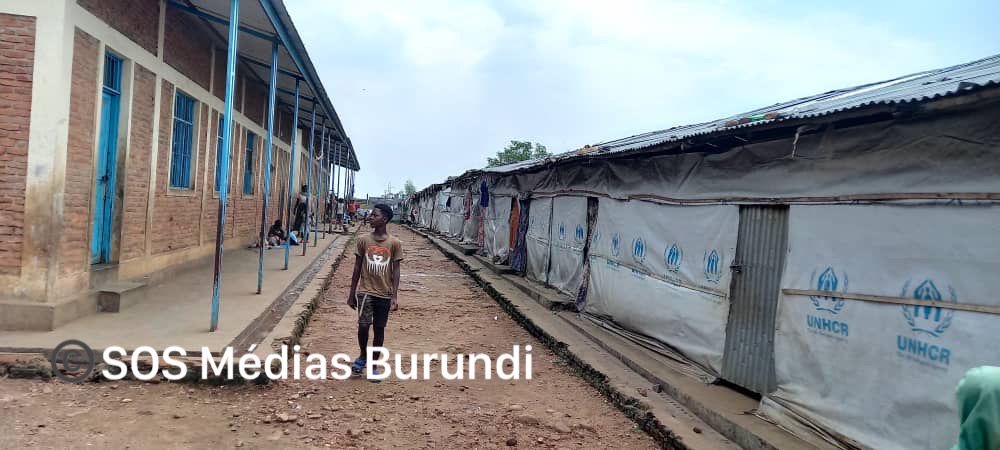Cishemere : long waiting times, a major obstacle to the education of asylum-seeking children

The Cishemere transit camp, located in the province of Cibitoke (northwestern Burundi), hosts Congolese asylum seekers fleeing the war in the east of the Democratic Republic of Congo (DRC), particularly from the provinces of North Kivu and South Kivu, which have long been devastated by violence, conflict and insecurity, fueled by more than 130 local and foreign armed groups.
INFO SOS Médias Burundi
Faced with this alarming situation, many Congolese are fleeing to Burundi, hoping to find refuge and safety there. At the Cishemere transit camp, asylum seekers are experiencing a prolonged wait before obtaining the refugee status, considerably delaying their children’s education.
The process of obtaining the refugee status, which depends on the Consultative Commission for Foreigners and Refugees (CCER) on the proposal of the National Office for the Protection of Refugees and Stateless Persons (ONPRA), involves individual interviews and an in-depth assessment of the situation of each asylum seeker. This process takes months, even more than a year, leaving many asylum-seeking children deprived of access to education. While they are staying in this transit site while waiting to be transferred to other camps or to the Giharo site (Rutana-southeast province), many children see their education compromised or even completely interrupted.
To better understand the reality experienced by these asylum seekers, we met two men who fled the war in the province of South Kivu.
Pierre, 45 years old, a father, is from Kahololo, in the Bafulero chiefdom, in the Uvira territory. With his eight children, he says, « We left everything behind and escaped the war. When we arrived here, we hoped to find a safe place where my children could go to school. But after more than 11 months in this transit camp, they still have not been to school. I feel helpless. Education is essential for their future. »
Pierre explains that life in the camp is difficult. Resources are limited and the uncertainty about their future weighs heavily on his family. « My children spend their days doing nothing. They should be at school, learning and playing with other children. Instead, they are faced with boredom and frustration. »
Luc is another chief of a household. He left Fizi territory with his six children after being threatened by Mai-Mai militias.
« I came here with the hope of a better life. But the reality is harsh. My children cannot go to school, and I don’t know how much longer we will have to wait here. Every day that passes is a struggle, » he explains.
Luc also speaks of the sense of anxiety that prevails in the transit camp. « We are surrounded by other families who are experiencing the same distress. We share our stories, but it does not change our situation. We need to be transferred to camps where we can educate our children and rebuild our lives. »
The lack of education of children of asylum seekers in the Cishemere transit camp represents a major challenge for these families already affected by war.
It should be noted that Burundi has already granted the refugee status to nearly 90,000 Congolese. The majority of them are spread across five refugee camps.
——
A young man in front of classrooms at the Cishemere transit camp in northwestern Burundi (SOS Médias Burundi)

